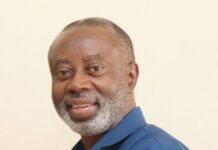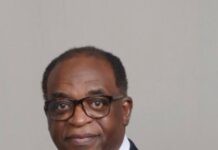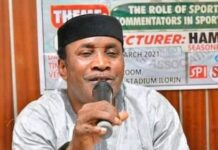 The Thought Police of George Orwell’s 1984 was a delightful creation. It represents the ultimate symbol of authoritarian insanity where your very personal thoughts are monitored.
The Thought Police of George Orwell’s 1984 was a delightful creation. It represents the ultimate symbol of authoritarian insanity where your very personal thoughts are monitored.
The Thought Police, or Thinkpol, in the novel’s Newspeak, became, for generations, the shorthand of the behavior of dictatorships and undemocratic governments anywhere in the world. If one feels that tyranny and clampdowns were getting out of hand, one was likely to blame it on the overzealous thought police.
In reality, most of the time, people who presume themselves able to control others exaggerate their capabilities. I mean, seriously, how can anyone control what goes on in your head? They can control your speech, they can control what you read, but they can’t really control what you think. Or can they?
But they pretty much will give it their best shot. And that was what made last Tuesday May 9 a “Super Tuesday” in the Nigerian National Assembly when the two chambers of the Assembly defied the thought police of the All Progressives Congress, APC, to shoe-in a leadership that represent, the wishes of the people and not the desires of APC’s Thinkpol.
By definition, Super Tuesday is that Tuesday in February or March in the USA when a large number of party men are elected in different polls, straw polls and all to represent their various constituencies. What made last Tuesday Super in Nigeria is the Tsunami that the election of two key numbers in government, three and four, has created.
The double defiance of the hierarchy of the APC and the masquerades behind the party culminated in the emergence of two astute politicians in the persons of Dr Bukola Saraki and Yakubu Dogara as Senate President and Speaker of the House of Representatives respectively. I had had cause to justify the ranking hierarchy idea which would have initially given the two positions to Dr Ahmed Ibrahim Lawan and Femi Gbajabiamila as Senate President and Speaker respectively.
Both men are eminently qualified politicians, whose contributions to the National Assembly, over the years, have been remarkably illuminating. Nobody can wish them away.
Both are valued members of the National Assembly, by whatever standards. The major issue is that the 1999 constitution Chapter Five (Sections 48-51) as amended restricts the right to choose the leadership of the assembly to elected members of the various chambers alone and not the platforms upon which they won election into the assembly. But the powers behind their selection, when unmasked appear not just disarming but seriously disturbing. In the calculations of many members-elect that I have spoken to, the two prospective principal officers were to front for a subterfuge that would have been of little help to President Buhari, if not entirely antithetical and destructive to his command. It would have ushered in what ordinarily would become a cataclysmic misadventure. It was not to be. The quiver was averted.
I have heard many people talk about an insidious conspiracy against the APC, by former members of the Peoples’ Democratic Party, PDP in the NASS. This is due to the emergence, I believe, of the immediate past Deputy President of the Senate, Ike Ekweremadu who retained his position in the 9th assembly. But nothing can be farther from the truth. There was no conspiracy. There was high-wire horse-trading and high tension intrigue. Those who thought they held the lifelines to visibility attempted to test the will of the people and were shown where power belonged.
In discussions with some of the governors that facilitated the coupe against the masquerade, “this little incident”, as they call it, is far from the rocky road to Paris that most people think the APC bus will ply. It is no cause for alarm. There is a groundswell of new politic that is pervading the land, and President Buhari, who has since declared the Super Tuesday fiasco as “constitutional” is not oblivious of the fact that he is its major beneficiary, but is also actively its most conscientious protagonist, because of his declaration of non-interference in the functions of the legislature, in the first place.
Nigeria, the governors insist, is graduating from its fledgling character, where it had been stuck, into a living, or to be more precise, emerging democracy. Today, party cohesion is not representative of the views of one man and his robots but the aggregation of contending views, which are subsequently deliberated and adopted. It is in this regard, that one of the former governors of the North said they decided to railroad a different candidate from the wishes of the APC with the understanding that not minding the circumstances of their victory and the colour of their coalition, their victorious candidate would still submit totally to the president in the interest of the Nigerian people. And I am sure the victory speech of the Senate President, Dr Bukola Saraki, who ascended the seat on the strength of this commitment, takes care of this anxiety. Ditto the disposition of the Speaker of the House of Representatives, Hon Yakubu Dogara who admonished their opponents that they had lost nothing.
Those who are beefing after the Super Tuesday event had meant to use the change slogan to shortchange the masses. They are fifth columnists whose calculations portray this change as merely for them in good times, and for them in hard times. They prepared to deny the people the benefit of loyalty. On Super Tuesday they were disappointed. Power indeed belongs to the people.



